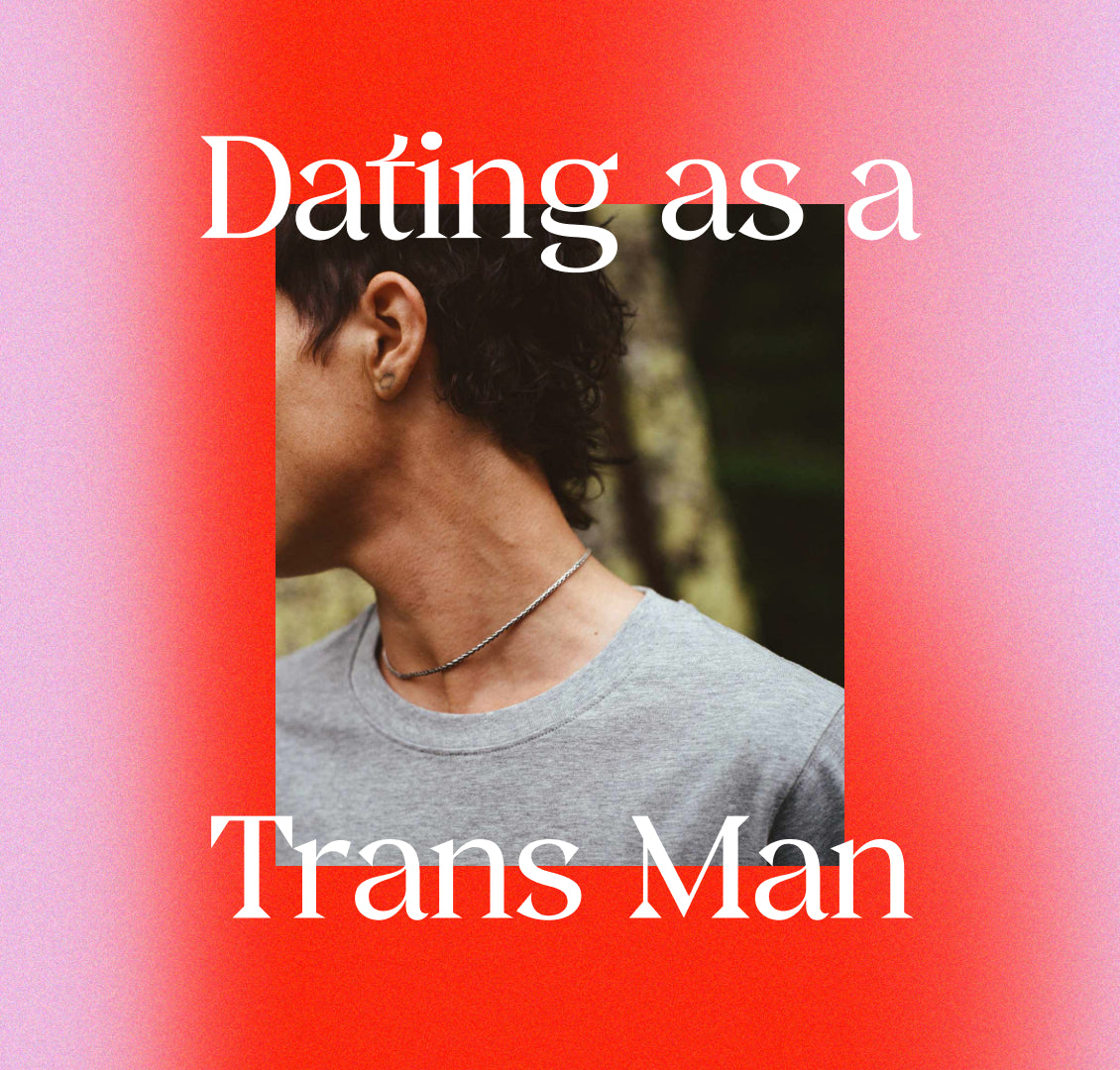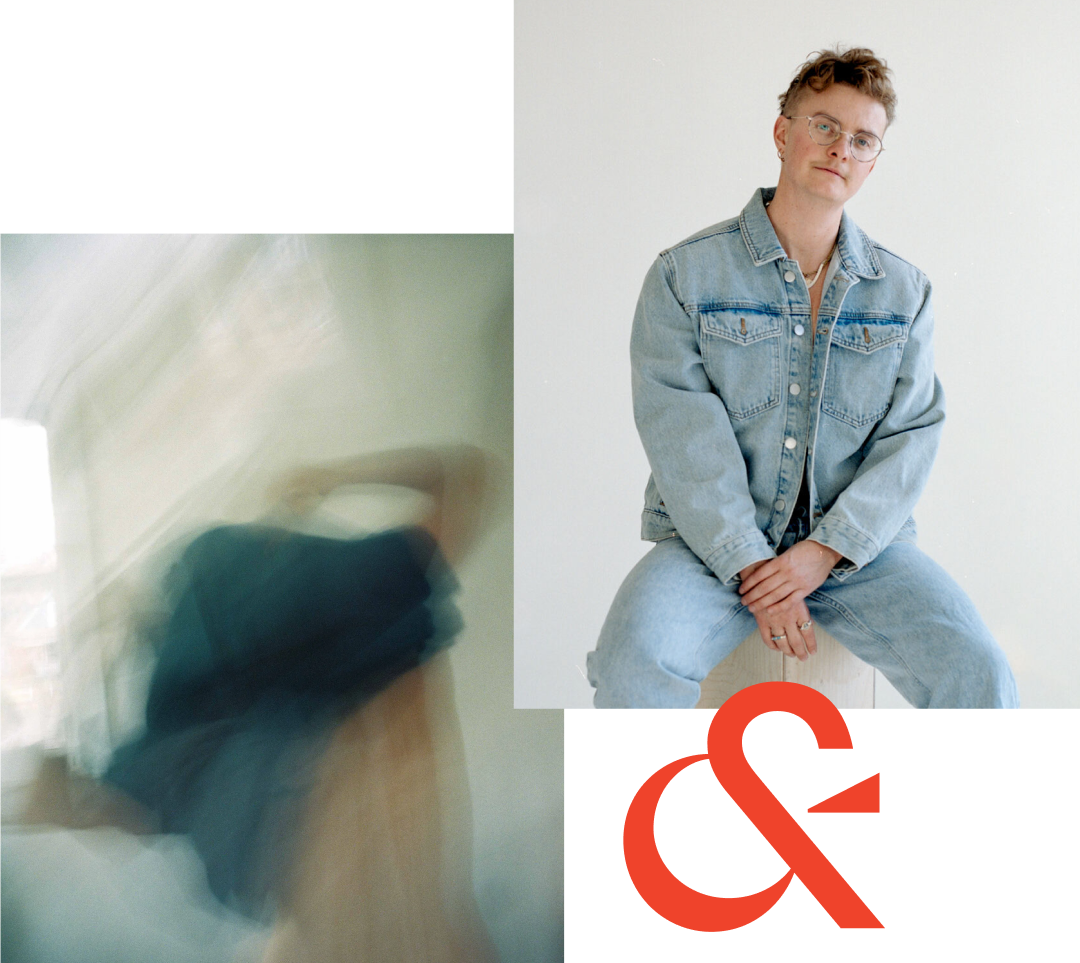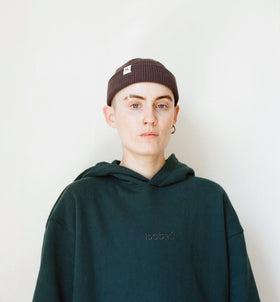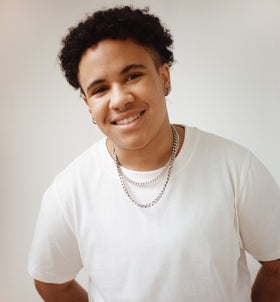
Mar 11, 2024
Dating as a Trans Man
Finnegan Shepard
Here is the most succinct way I can summarize the challenge I faced in dating when I began to transition: what I needed from my girlfriend was to simultaneously desire who I currently was and the body I was currently in, but also convince me that she was attracted to the me that I was becoming, the body that I would have.
That’s a lot to ask of a person, and it also gets at the heart of what is so beautiful and scary about transitioning. It’s a shedding of skins, a literal transfiguration. You are, for a while, all becoming. Now, four years into to medically transitioning, I am exuberantly married, thrilled every day at the body and identity I inhabit, and feel completely seen and desired in a way that is accurate and resonate for me. But it certainly wasn’t always that way, and I think that the narratives we as trans men hear about dating can be very extreme (as per usual, in the world of narratives about the trans experience) and not always the most helpful or instructive.
So today, my goal is to be transparent about my experience, to tell the story of the highs and lows, the fears and insecurities as well as the moments of empowerment and delight in my journey of dating as a trans man.
Dating as a Trans Man Pre-Transition
For the vast majority of trans people, our dating history predates our transition, and I am no exception there. While I always knew that I wasn’t a girl, and that I was attracted to girls/women, because I grew up in the nineties and early 2000s, there wasn’t the language for my identity that there is today, so I was put into the classic lesbian and/or ‘unclassifiable’ camp. To push back on that, I dated only straight women. The straighter the better. In high school and college it was a bit of a joke–looking back on it now, I see the seriousness underlying it. The only way I could signal to the world that they were wrong in reading me as lesbian was by pointing to the girl/woman I was dating: look, I was trying to say. She is attracted to boys, and she is attracted to me. This was an easier thing to say than to say I am a boy.
But of course, these relationships, for obvious reasons, were less than ideal. While I am still very good friends with many of the people I dated back then and there are no hard feelings now (mostly laughter), the reality is that there was a fundamental incongruity. I wanted to be desired as male, and to get close to that required all sorts of sacrifices, self-denials, and obfuscations, which in turn led to deep imbalance in the relationships. In simple language, I didn’t know how to have a body in these relationships. I felt loved and respected and desired for who I was, but not in the form I was in, and I honestly can’t blame my partners for this: whether it would have worked or not, I never gave them the chance to desire my body. To do so would have brought my identity as female into too stark a reality. And so instead I evaded, I made sex and partnership about the chase, about the high of ‘earning’ someone’s attention, about triangulation and drama. There was a lot of adrenaline and dopamine involved, but it was never particularly functional.
If I were to boil down my attitude in these relationships to an underlying feeling or attribute, it would be ‘antsy.’ I could never stay still. I was always seeking the next thing, always peripherally aware of a ‘threat.’ In retrospect, it’s clear that the threat was internal rather than external, that I was in constant motion as a way to grapple with an identity I knew to be true but wasn’t yet ready to embody. This leads us to the time in my life when that shifted, and the inevitability of transition began to sink in.
Transitioning in Relationship
Before I began to transition, I was engaged to a wonderful woman. We had been together for a few years, and while we had had some rocky patches, I thought that we were through all that, and entering a phase of calm and stability, both in our relationship and in our broader lives–in terms of career, location, etc.. Little did I know that I was about to enter the most radically unstable time period of my life. (I often describe it as my ‘burning everything down’ year). A series of things happened in short order: I met someone else, who immediately ‘saw’ me as Finn. My partner and I opened up our relationship, and a tumultuous few months of poorly executed polyamory and gender identity exploration ensued. To respect both of the partners involved in this phase of my life, I will keep the details and narrative specific to myself, but needless to say, it was chaos. I felt utterly bifurcated: there was the me I had always known, who had grown into a smart and confident and happy adult, and there was what felt like a four year old child in me that was screaming to be heard. The child was vulnerable, extremely needy, and utterly compelling. It felt like me 2.0, not that who I was or the identity I had inhabited until that point was a lie, but that this version of myself was more true, a higher resonance of self.
This brings up the point I made at the beginning of this essay: how do you establish secure ground to stand on in a relationship, when you want someone to soothe two contradictory fears in you? On the one hand, I needed to be reassured that who I was that day was desirable to my partner. On the other hand, I needed to be reassured that who I was becoming, at the expense of who I was that day, was desirable. And no, being told that I was loved and desired holistically, for anything and everything I was or could be, wasn’t satisfactory. I had felt loved holistically for years, but it felt like it was at the expense of specificity. I was choosing this huge, scary thing, in order to feel exact, specific. I didn’t want my partner’s position on that to be arbitrary.
Of course transitioning is a self-ish time period. It is quite literally about a deconstruction, examination, and re-construction of the self.
Within the trans community, you often hear the refrain that “transitioning is a selfish time period.” I agree with this statement, but would like to add a bit of nuance to it, specifically in breaking down what we mean by ‘selfish.’ Selfish tends to have a negative undertone, but there is nothing inherently negative about being oriented or focused on the self. Of course transitioning is a self-ish time period. It is quite literally about a deconstruction, examination, and re-construction of the self. It requires all of the focus and attention and reflection and courage we have. Undeniably, the by-product of hyper-attention on the self is that we often have little to no awareness to give over to everything else around us, and that is why it can be particularly hard on relationships. I don’t think there is a binary answer as to whether people ‘can’ or ‘can’t’ stay in a healthy relationship while they transition. I know plenty of people who have, and plenty of people–like myself–who didn’t.
What I will say is that in my experience, dating/a new partner was an important catalyst in the transition. The beautiful thing about the process of getting to know someone new is that you are invited to see yourself as ‘othered’ again through their eyes. You are new to them, which means you are potential, becoming, a blank slate. As a trans person, I found this early stage intoxicating, because there was always the ‘what if’ of them seeing me as Finn. It was like I was starting a song over and over and over again for about a decade, waiting for someone to decode me in the first few bars. Eventually someone did, and while that relationship ultimately didn’t work out, I am forever grateful for being seen by her, and the courage that gave me to take the first steps into transition.

Dating as a Trans Man
I’m a COVID trans man baby. As in, I started to take testosterone about six months before the first lockdown, and got top surgery a month into lockdown. This made the process of transitioning unique, inasmuch as I didn’t experience transitioning in the public eye in the way many folks do. It also had a big impact on dating: I spent a solid six months completely solo (which was the longest I had been single in my adult life). I’m incredibly grateful for that time, because it enabled me to orient myself and get my feet under me in a way that was deeply necessary. When I did start to date, I only had a few experiences with casual dating before I got together with the partner who would become my wife–all that to say, I don’t have that much experience with this phase, characterized as a time in which I was out and living as a trans man, and casually dating.
The two experiences I had that stick in my memory were: 1) reconnecting with someone I had been casually involved with nearly a decade before, and 2) a brush with dating apps. The first experience was interesting in how anti-climatic it was. I had been very into this person a long time ago, but they had been quite avoidant and/or I was someone they were moderately into, but wasn’t ‘it’ for them. We reconnected during one of the eases in lockdown and hung out a few times. It was friendly with the potential edge of something more, but ultimately fizzled out. What I found fascinating about the experience was that my transition was a non-event. They were cool with it, found trans men attractive, used the correct pronouns, etc. The reason it fizzled was because of the deeper or more macro scale reality that there simply wasn’t a lot of chemistry between us. While the ‘failure’ of that compatibility was momentarily a disappointment, it was also very existentially healing. It released me from the illusion that I could only be rejected for gender reasons. On the one hand, accepting the enormous range of reasons a person could not be attracted to you is overwhelming, but on the other hand, it’s deeply relaxing. We’re all just humans, and the magic of what makes two people work is incredibly nuanced. Gender is a part of it, but only a part.
The second experience was with dating apps. This was a bit of a mixed bag. On one of my best friend’s birthdays, we went on a hike, got tipsy by his condo’s pool, and set up Bumble profiles. As I sobered up and sat on his couch flicking through profiles, I was filled with a deep sense of doom. Sure, you can’t judge a book by its cover, but flicking through all of these ‘potential partners,’ no one ‘looked’ like they would be both someone I was attracted to and someone who would be into trans men. This is of course pure speculation, but it was just the gut feeling I had, and I found it incredibly depressing. I did end up having a few women reach out to me, and so the experience ultimately was a mixed bag, but I deleted the app after about 24 hours. I think it’s fantastic that we now live at a time where there are more dating app options as well as preference options within the apps, but I personally found the experience quite overwhelming, and I really don’t know what the process of going on dates and talking through my identity would have felt like. About two months after the Bumble debacle, I spent time with the woman who I would go on to marry–someone I had met in graduate school–and I felt that the context of our getting together was ideal for me. She had known me for years, seen me transition, and held her love and desire for me in a way that I was ready to receive. Like all good relationships, you co-create the space between you. She could neither ‘solve’ my fears or insecurities by herself, nor do I think I could have entirely eased those fears and insecurities solo. Instead, we both brought ourselves to the table, and in the co-creation made a space that is as comfortable and luxurious and fulfilling as I could possibly imagine.
Post Script
This is not a prescriptive article that tells you ‘how to’ date as a trans man. It’s simply one story among many. I am a firm believer that stories are one of the healthiest, more human ways we have to grow and share in the experience of becoming. In my transition, reading other people’s stories made me feel less alone and more reflected in the world. Parts resonated and parts didn’t. Please take my story with a grain of salt, letting whatever resonates percolate, and letting go of whatever doesn’t. And importantly, please help us in the work of sharing stories: we currently have an open call for submissions. If you want to write a piece like this and have us share it on our website, email, and socials, please email anthony@bothandapparel.com. We are on a mission to share the diversity and beauty of our experiences as gender queer people.




